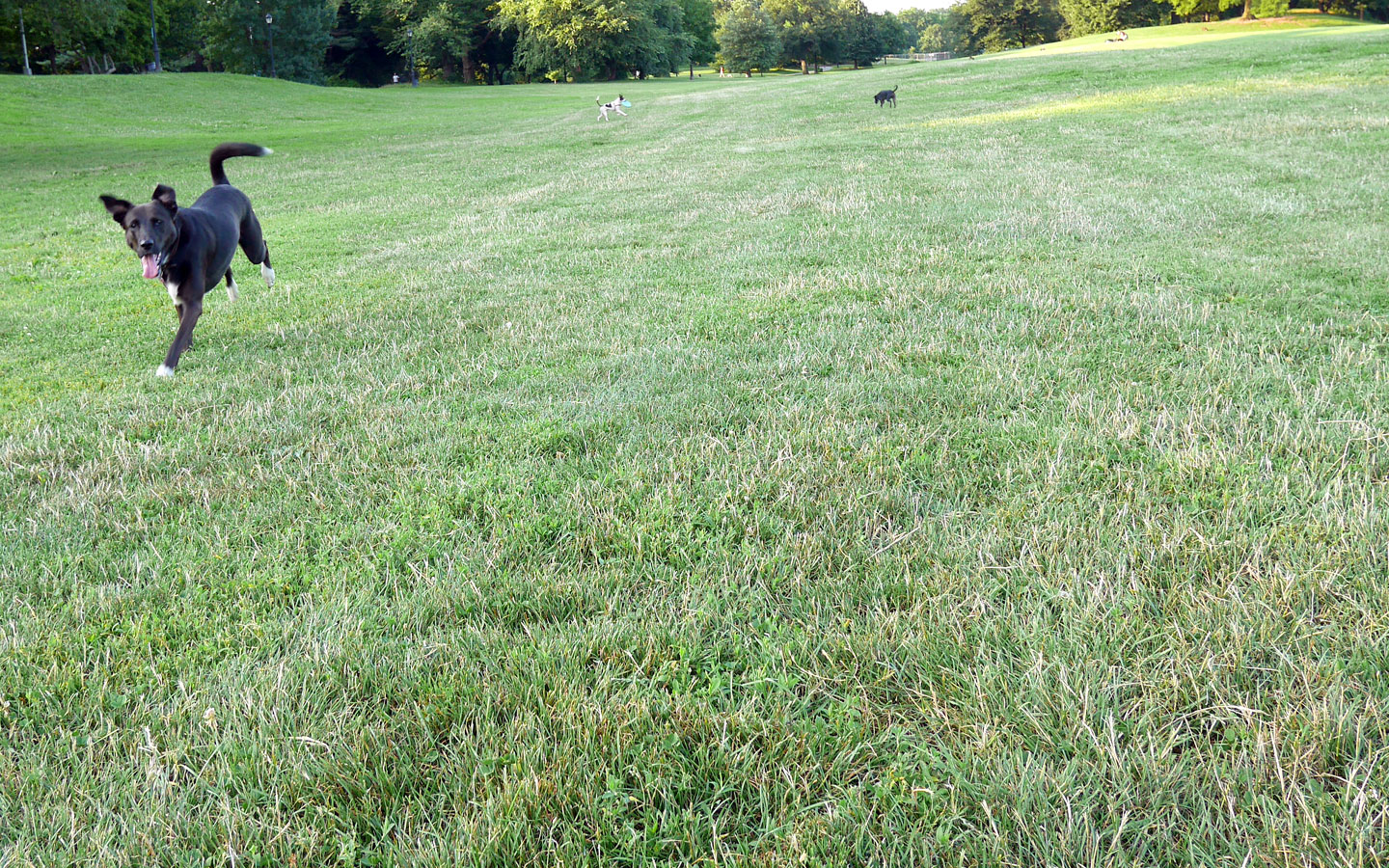Summer Safety Tips for Pets

Summer’s a great time to take a break from the regular grind and spend those extra daylight hours with your pets. While it’s fun to get out and play fetch or go for a walk, pet owners need to be mindful of the seasonal hazards that come with warmer weather. We’ve gathered some tips to keep your dog or cat safe when the temperature rises.
Heat
- Walk when it’s cooler: Adjust your schedule to take walks when pavement is cool, like early in the morning or later at night. Of course, dogs need to be walked regularly, but since sun-heated asphalt can get up to 140°F (60°C), try to minimize your dog’s exposure to the hot streets.
- Avoid cramped spaces: Don’t keep pets in small, enclosed spaces with poor ventilation. We all know not to leave our pets in the car, but other tight spaces can be just as dangerous. Dog houses and poorly ventilated cat carriers can trap heat, putting your pet at risk for heatstroke. Always take precautions like bringing pets inside during the day, or lining the outside of pet shelters or carriers with ice packs.
- Cool your pet with water and treats: Wherever your pet is, make sure they have access to water; that might mean planning ahead and bringing a spare water bottle and dog bowl on your next outing to the park. You can also feed your pet a moderate amount of ice chips, switch them to wet food to increase their liquid intake, or even make some frozen snacks.
- Keep an eye on humidity: High levels of humidity make it more difficult for many pets to cool down. Avoid high humidity levels by staying in cooler areas or indoors, or consider using a dehumidifier.
- Forget about fans: Cats and dogs don’t cool off the same way humans do. While both sweat through paw pads in their feet, dogs and cats often have to rely on outside sources to regulate their temperature. Typically, this means they’ll seek shade, rest on a cooler surface, or pant, although panting is much more common in dogs; in cats, it’s usually a sign of stress or a more serious health problem. So, what can you do to help your pets beat the heat? Keep them in an air-conditioned area or hose them down with cool water, and don’t rely on a fan to cool down a hot pet if the air itself isn’t cool.
Out and About
- Avoid the parasites’ paradise: Summer can mean increased exposure to parasites like ticks. Consult your vet to make sure your pet is up-to-date on shots and other preventative measures. It’s also a good idea to check your pet’s paws and foot pads each day for any scrapes or irregularities.
- Use sunscreen: It can be easy to forget that underneath all that fur, your pet has skin just like humans do, and it can also get sunburned. Pets with thin coats or white fur have increased risk of damage due to sun exposure, so make sure to put sunscreen on them before you go out.
- Use pet-specific products: Whether it’s sunscreen or bug spray, make sure the protectants you’re using on your pet are safe and intended for use on animals. When grooming themselves, pets can ingest the chemicals we put on them, so make sure the ingredients are pet-safe. Most pet stores carry pet-safe products, so be sure to ask during your next trip.
- Give your pets some shade: If you’re on a long excursion, make sure your pets get plenty of shade; it’ll help them get out of the sun and cool off. If you’re going to a park or beach with no shade in the immediate vicinity, bring along an umbrella or tent.
- Give pool exit training: Before having fun with your pet in the water, make sure they know where and how to exit the pool. Work with your pet, and lead them in and out of the exits several times before you let them roam.
- Never leave a pet in the water unattended: The water can quickly become a dangerous place. At the beach, pet owners need to makes sure their pet doesn’t fall victim to a riptide or jellyfish. At the pool, you might need to help out a poor swimmer or a pet that tires out before reaching the stairs.
At Home
- Use window screens: If you decide to let the summer breeze cool down your home, make sure your windows have screens on them. In a phenomenon known as feline high-rise syndrome, cats are prone to injury (and worse) from falling out of unsecured windows. Since cats can squeeze in and out of small gaps, make sure your screens provide complete coverage and don’t have any snags or tears.
- Put up window shades: If your windows get a lot of sun every day, it’s a good idea to invest in some window coverings to keep your space cool. Even drawing the blinds or leaving curtains half-down can be a big help.
- Take care at cookouts: Whether you’re attending a barbecue or just grilling out, it’s important to make sure your curious cat or dog doesn’t burn themselves or eat something dangerous. Whether the hazards are by the grill or the trash can, be conscious of any chemicals and never use lighter fluid around pets; unfortunately, ingestion can be fatal.
These common sense tips can save you and your pet from summer troubles ranging from heat exhaustion and sunburn to serious injury. As always, if you have more specific questions or concerns about exotic pets, please consult a veterinarian or other pet care professional. Here’s to a safe and fun summer with your best animal friend!
Do you have any tips on keeping your pets happy and healthy in the summer? Share them in the comments!

You must be logged in to post a comment.